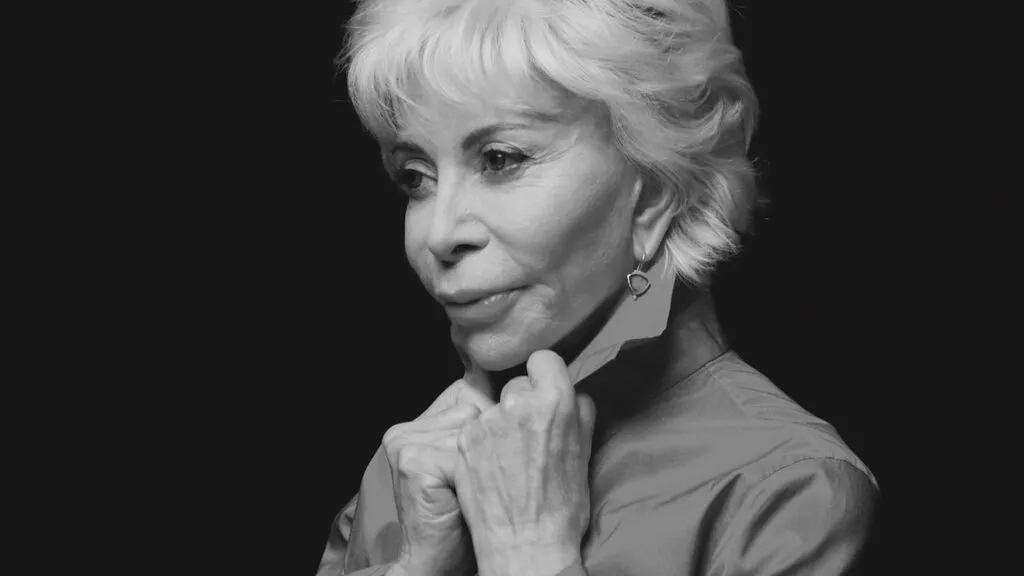Isabel Allende: The Voice of Fear and Change in Society
Isabel Allende is a writer whose works explore complex human emotions, societal changes, and the historical struggles of various communities, with a special focus on Latin America. One of her most thought-provoking narratives comes from her observations of how fear impacts society and molds the lives of individuals. Through her storytelling, Allende creates a space where readers grapple with the emotional and psychological ramifications of fear. Recent discussions surrounding her works, particularly her poignant essay “The Interview,” emphasize the nuance of this theme, and how fear can deeply disorient a community, causing significant cultural and social shifts.
Understanding Fear’s Role in Society
In “The Interview,” Allende discusses how fear, often an invisible force, can dictate personal and collective actions. She argues that fear shapes not only individual lives but also the broader cultural landscape. When people live under constant anxiety—be it due to political oppression, social instability, or economic uncertainty—those emotions seep into the societal fabric, altering perceptions and behaviors.
Allende’s experiences, from her childhood in Chile during the turbulent years of the coup and subsequent dictatorship to her current reflections as an acclaimed author and activist, inform her viewpoint. She articulates that fear brings about a pervasive silence, where individuals may retreat, stunting personal development, and limiting the potential for engagement in societal issues.
The Transformational Aspect of Fear
While fear can lead to oppression and silence, Allende also highlights its potential to incite change and revolution. Fear can lead people to reevaluate their beliefs, question authority, and ultimately rise in resistance against oppressive regimes. Through her works, Allende illustrates that fear does not only result in withdrawal; it can also forge solidarity among affected communities, encouraging individuals to stand against injustices together.
By presenting characters who grapple with their fears, Allende routes a narrative of resilience. Her fictional protagonists often experience a tumultuous journey marked by both internal and external battles, reflecting how fear is confronting yet transformative. Allende’s belief is that facing fear—whether through storytelling or lived experience—can be cathartic, equipping individuals with the strength needed to address their situations and inspire change.
El “pinchazo” and Its Political Repercussions
A recent event that echo the complexities of fear and its repercussions in society involves the investigation linked to Isabel Allende stemming from the illegal tapping (referred to as “pinchazo”) of the phone of former minister Crispi. This scenario provides a real-life lens through which we can examine Allende’s theories expounded in “The Interview.”
The illicit surveillance evokes fear not just in the targeted individuals like Crispi, but also reverberates through society at large, amplifying distrust towards institutions. This case represents a manifestation of the invasive nature of fear—where citizens are continually under threat of surveillance, resulting in a chilling effect on political discourse, civic engagement, and freedoms of expression.
For Allende, the chilling implications of such actions reflect the broader concerns regarding the state of democracy and human rights within political systems. Just as fear can silence individuals, it can also create atmospheres where institutional corruption and abuse flourish unchallenged. Allende’s articulation of fear in her written work becomes even more poignant against this backdrop of real political ramifications.
The Role of Media in Shaping Society’s Perception of Fear
Media plays a crucial role in either amplifying or diminishing the fear experienced by the public. In many of her discussions, Allende emphasizes the intersection of media and fear, asserting that media has immense power to shape narratives. How fear is presented in news narratives, whether overtly or subtly, influences public sentiment and potential action.
Allende has often critiqued the sensationalism found in media portrayals of violence and suffering. She argues that while it is essential to report on such issues, framing them in overly frightening manners can lead to desensitization rather than empathy. It obstructs deeper understanding and engagement with the issues at hand, as fear becomes a barrier rather than a bridge to meaningful dialogue.
Conversely, media can also empower individuals by highlighting stories of resilience and bravery. As Allende poignantly states, narratives of hope in the face of adversity can inspire collective action. Her own life and the visibility she brings to the stories of others serve as an example that while fear exists, exploring themes of liberation, justice, and community can alter the trajectory of societal development.
Allende’s Call to Action: Embracing Vulnerability
Throughout her essays and novels, Isabel Allende emphasizes the importance of vulnerability in confronting fear. She argues that acknowledging one’s fears is a critical step toward transformation. For Allende, vulnerability allows individuals to connect, share, and rally around common experiences, fostering stronger communities.
Vulnerability becomes not a weakness, but a conduit for strength. In times of societal upheaval, it can encourage people to view themselves with compassion rather than judgment, opening pathways to understanding among differing perspectives. In this framework, Allende calls for societies to embrace their fears instead of allowing them to dictate action or inaction.
Conclusion: Reflections on Fear, Society, and Transformation
Isabel Allende’s explorations of fear, be it through fictional narratives, essays, or her reflections on political events, compel readers to confront the deep-seated emotions that govern human behavior. Fear is portrayed as an ever-present force that can either inhibit growth or foster resilience. Through “The Interview” and her narrative literature, Allende invites society to engage with fear, understand its implications, and uncover pathways to dismantle its oppressive grip.
As society grapples with increased uncertainty in various realms, Allende’s perspectives urge a democratic awakening—a reminder that through our shared vulnerabilities, we can navigate the tumult of fear and emerge with strength, ready to instigate the changes we wish to see around us. By illuminating these pressing issues, Allende remains an essential voice in literature and social discourse—urging us all to engage openly with fear and to become agents of transformation.







